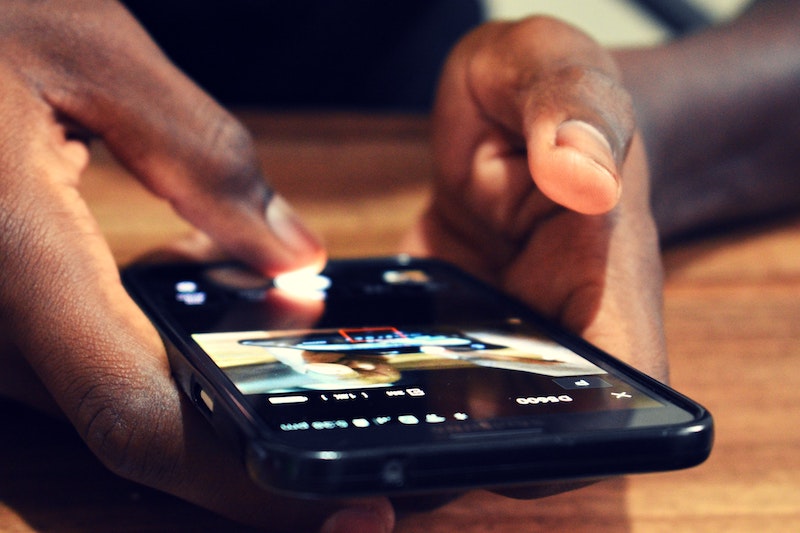Aren’t we sick of hearing about cis men in areas that don’t concern them? So, why am I writing this blog…
The horrific anti-abortion ruling in the USA will have catastrophic consequences and has sent shockwaves around the world. Media responses have included a rise in discussions of how cisgender men can be allies to reproductive rights and how abortion restrictions affect men. However, involving men in the fight for Reproductive Justice requires first grappling with how men are involved in abortion-related care trajectories.
When considering how to integrate men into abortion rights campaigns, we first need to consider the impact of gendered environments and unequal power dynamics on reproductive autonomy. Patriarchal cultures worldwide allow men to dominate reproductive decision-making at the interpersonal, community and national levels. When women and pregnant people decide whether to obtain an abortion and access care, they do so while navigating a world made for and dominated by men.
What do we know about men’s involvement in abortion decision-making?
A recent review of 37 studies mapped out current evidence of men’s involvement in abortions. The evidence provides an informed way to consider the positive and negative complexities of men’s involvement in abortions and how efforts to improve men’s allyship could look.
Evidence from India and Thailand highlighted that men could provide important support. This included financial and emotional support, including accompanying their partners to care or checking on their partner’s wellbeing. Women and pregnant people in the studies indicated that this support mitigated negative emotional feelings towards their abortions and facilitated their access to care.
When considering how to integrate men into abortion rights campaigns, we first need to consider the impact of gendered environments and unequal power dynamics on reproductive autonomy.
However, men’s involvement was neither desired nor consensual for many women and pregnant people. Women across different contexts described the necessity of involving a man in abortion, not because they wanted their input but because men controlled the finances and resources necessary for accessing an abortion. In two studies in Ghana and Kenya, women described how men used their financial status within the household to exert control over an abortion decision.
The desire not to disclose a pregnancy to a man, particularly a partner, was a consistent finding across studies. Women and pregnant people wanted to make their abortion decisions and avoid physical or emotional coercion from others. For example, women in a study in Zambia reported that their decision to not disclose their pregnancy to their partner was a means to preserve their autonomous abortion decision-making. Yet, such decisions also heightened the social danger of seeking an abortion, necessitating secrecy and care-seeking away from public spheres, including hospitals.
Where men deny paternity or reject a pregnancy, men leave women faced with the prospect of parenting without the necessary finances and resources (provided by men within the patriarchal ‘breadwinner’ construct) and exposed to the social stigma of being an unpartnered parent. This can result in an increased vulnerability to pressure from male family members, particularly brothers, to obtain an abortion, as reported by young, unmarried women in Sri Lanka.
Ultimately, for cisgender men to be true allies in the fight for abortion rights – and more broadly, in the pathway towards achieving Reproductive Justice – the focus must be on dismantling the very patriarchal structures from which they benefit.
Where to now?
While men’s involvement in abortions was not uniform and not always negative, studies included in the scoping review revealed the extent to which this involvement was born of necessity and not a choice. Positive experiences of men’s involvement frequently centred on emotional support. In contrast, for many women and pregnant people, men’s involvement was a means to navigate the significant socio-economics barriers they faced to care. By contrast, men can take advantage of their patriarchal social context to shape a pregnancy outcome by deciding whether to accept paternity. Whether consciously or otherwise, evidence from recent studies emphasises that men can operationalise mechanisms based on patriarchal social structures in seeking their desired pregnancy outcomes, with or without the consent of a woman or pregnant person.
Feminist pro-abortion collectives continue to trailblaze meaningful activism and organisation to challenge patriarchal structures, with major pro-abortion victories in Argentina, Mexico, Ireland and more. Yet, the recent rollbacks on abortion rights in the USA and Poland are a reminder of how vulnerable the reproductive rights of women and pregnant people can be. In Poland, a recent activist campaign by Abortion Dream Team offers a vision of men’s positive allyship. Their ‘Her body is her choice!’ campaign is the first in the world to feature high-profile and influential men telling other men to respect women’s bodily autonomy. Having just launched, it presents an exciting moment to consider meaningful engagement with men.
Ultimately, for cisgender men to be true allies in the fight for abortion rights – and more broadly, in the pathway towards achieving Reproductive Justice – the focus must be on dismantling the very patriarchal structures from which they benefit.
Photo by Thomas Ward






En muchos países, las clínicas de aborto aceptan pacientes sin necesidad de una derivación de un médico de atención primaria. Esto facilita el acceso a servicios de aborto sin demoras innecesarias, lo que es especialmente importante en casos de embarazos no deseados.
Asistir a una clínica de aborto legal contribuye a la normalización del acceso a la atención médica relacionada con el aborto, lo que puede ayudar a reducir el estigma que a menudo enfrentan las personas que optan por esta opción.